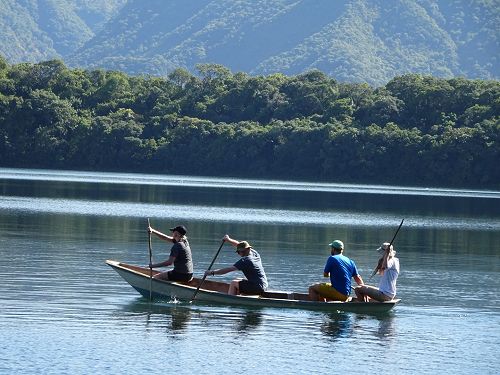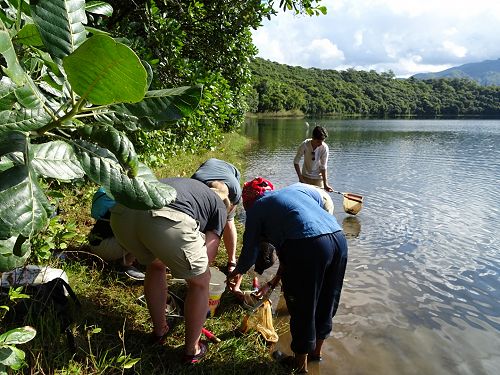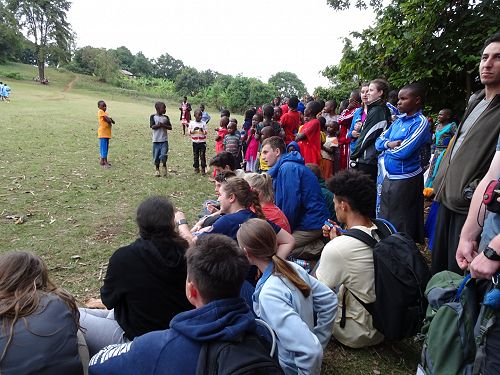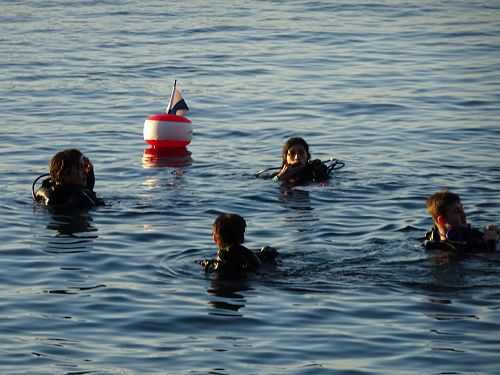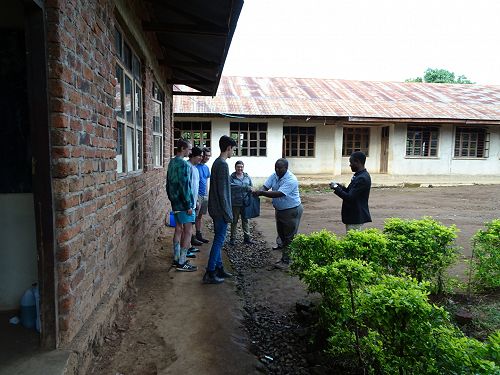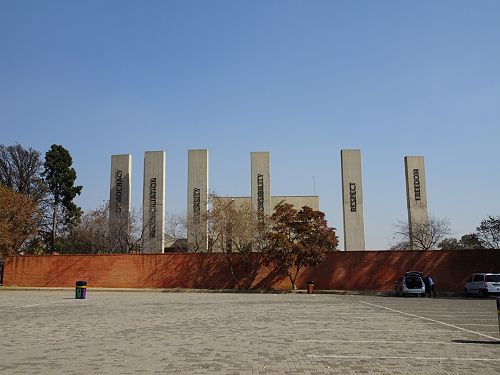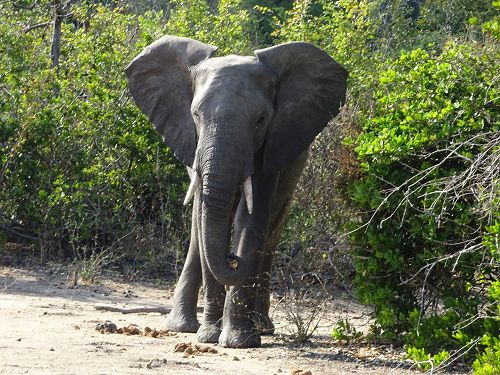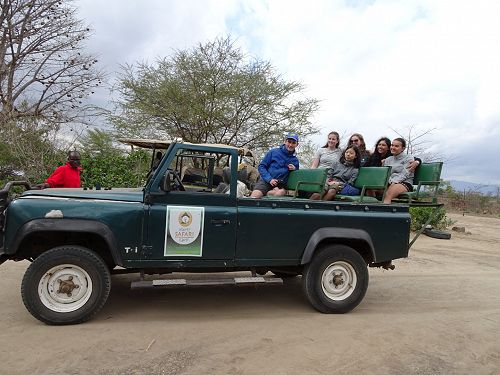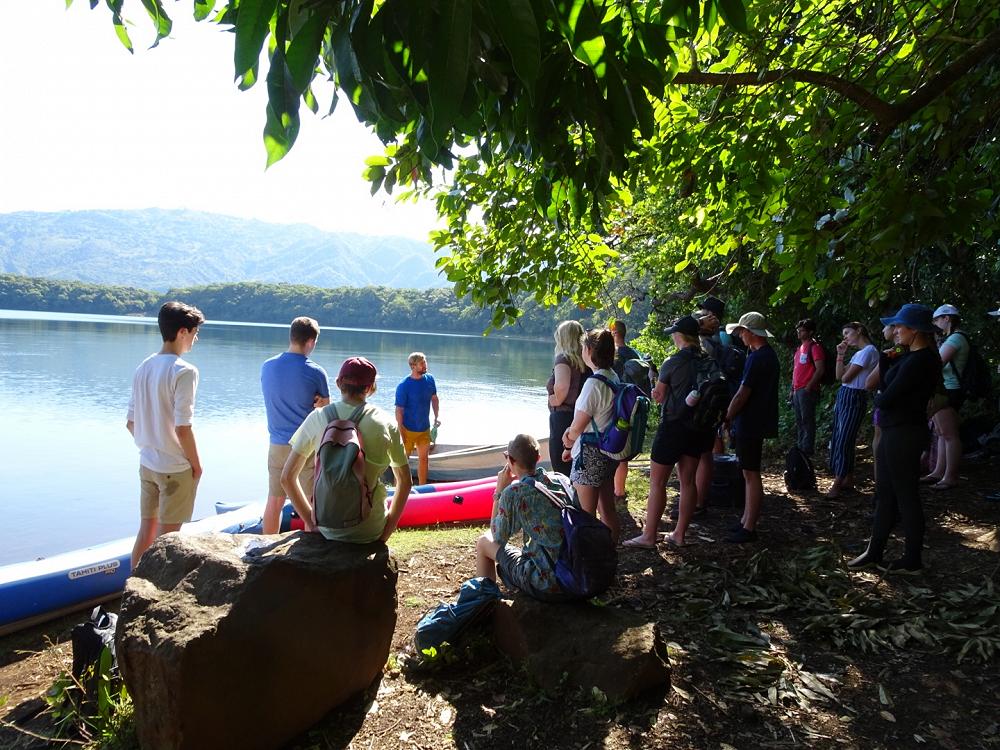
Great Rift Valley Africa Expedition
On the second of July, in the last week of last term, four boys from King’s left on an Operation Wallacea expedition to Africa. Arlo Munro, Cameron Bruce and Nick Unahi from Year 12 and Reuben Morison from Year 13 were accompanied by Ms May on the intercontinental journey to study Marine Biology in Tanzania and Malawi.
After three days of long flights and stopovers in Johannesburg and Dar Es Salaam, we arrived at Kisiba High School in Tanzania, where we met 20 other high school and university students from around the world.
There we stayed in makeshift dormitory accommodation in unused classrooms, with intermittent power and no running water!
Local food was delicious and bathing in the lake was a new experience. We learned the ways that local and foreign Scientists study Lake Masoko, a small crater lake less than five minutes walk from the school. The Scientists are interested in the two species of Cichlid Fish in the shallow lake, as well as the biology and biochemistry of the lake itself. We also learned about the local culture, spending a day weaving baskets, talking with local students (who study English at school but speak Swahili) and visiting nearby Masoko Village, as well as watching a Football game between two skilled local teams on the most uneven field imaginable.
After four days studying in Kisiba, we bussed eight hours to a resort in Nkhata Bay, Malawi. Here we met new Lecturers and Scientists who study the diverse Cichlids in Lake Malawi. Though the lake is more than 500 kilometres long, over 700 metres deep and home to almost 900 species of the Cichlid family alone, the students focused their studies on just 13 of the species found in Nkhata Bay. To study these incredible Fish, we Scuba Dived to as deep as 15 metres and laid Transect Lines, along which we surveyed. By studying these species, the researchers from Operation Wallacea hope to find ways to conserve the natural resources in both Tanzania and Malawi, to ensure the environment surrounding the lakes remains as beautiful as it is now for future generations.
The last two nights in Malawi were a real treat. We travelled to Liwonde National Park and stayed at Liwonde Safari Camp. It was astonishing to see Elephants right in the camp just after we arrived. The next day we went on a Boat Safari and saw Hippos, Elephants and even Buffalo on the Shire River. We also went on a Jeep Safari. The morning group saw heaps of Elephants, Impala and even Kudu and Bush Buck. It was fairly cold and drizzly so the afternoon group didn’t see many animals unfortunately.
On the return journey, we had a day to spend in Johannesburg. Ms May insisted we go to the Apartheid Museum, which turned out to be an amazing experience and we were there on Nelson Mandela’s 100th Birthday. Three of us spent an hour and a half at the adjacent theme park on some thrilling rides, and later Reuben enjoyed an hour at the Aviation Museum while the rest of us had lunch.
All in all, the almost three weeks in Africa were a real eye opener in many ways in addition to the high level science work we did. The local people in both countries were welcoming and happy even though they appear to live a very subsistence level of life – entirely different to our own. Spending many thousands of Tanzanian Shillings or Malawi Kwacha for a drink or snack was a bit startling too. The four of us think this is a trip the Science Department should offer again, maybe every two years. We thank our parents and Mr Everett for helping us with the fundraising too.
Gallery
